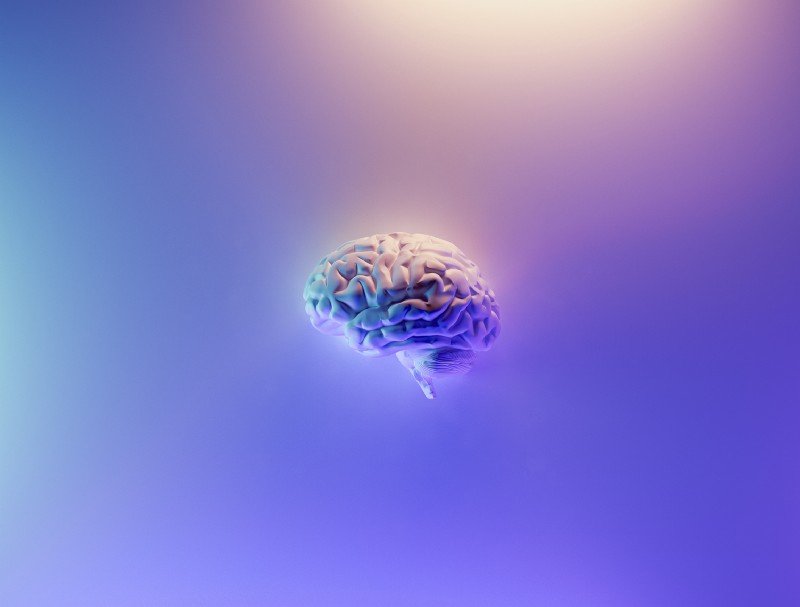Are Anxiety, Depression, and Dementia Related?
My theory is that anxiety triggers depression and, consequently, dementia.
image by Milad Fakurian onSplash
I always wondered what happens to our brain if we repeatedly make decisions based on fear or in a state of anxiety––via the amygdala, a fear processing hub.
Someone in my family is now suffering from dementia. When I talked to his caretaker and recalled his habits and lifestyle, I discovered that he always made his decisions out of fear––a fear of tomorrow governed by a dangerous dependency on 'what-if'.
It starts with little things and small decisions. Like being afraid of spending money on basic, high-quality whole food because it's more expensive, and instead buying processed "buy-one-get-one-free" deli, which is hardly a delicatessen, let alone nourishing. What if I need these extra few dollars I just "saved" tomorrow.
Or staying home for vacation because of a plethora of reasons, all of which had to do with what-ifs. What if I get stuck, what if there is a delay, what if my hotel room is given to someone else, and I don't want to spend my discretionary income, because 'you never know'.
My relative was a building maintenance technician and a very good one, but he always had unsubstantiated fear of being let go from work, and for that reason never asked for a raise. Going to work every day was a nerve-wracking experience, because "what if today is the day they fire me" or "what if I can't fix something and they fire me".
When he came from work, he would eat, and then take a nap. A two- or three-hour nap. He didn't read, didn't socialize, at most, he’d sometimes watch the news. He felt he was safe sleeping. Nothing bad could happen while he snoozed. Then, he ate his dinner, watched his news, and went to bad.
Then the dreadful morning would come.
Was his life-style an indicator of depression? I would think so. But he never complained to a doctor. People who are depressed rarely do. And, as far as the doctor was concerned, his patient was healthy and fine.
When we learn a new skill, we create new pathways in our brain between our neurons. This process is called neuroplasticity. The more we do the same task, the less we have to think about it. The action becomes automatic, as repetition establishes strong neurological pathways. That's how we become skillful.
That's why it's important to never stop learning, occasionally do things outside our comfort zone, and keep engaging other parts of the brain with new experiences. New knowledge lights up our brain with activity, builds new connections, and can even secure old ones.
Solving puzzles is equally good for the health of our brain, as well as our emotional stamina, as it instantly gratifies us with the joy of seeking and finding solutions to problems.
My relative did solve mechanical and electrical problems, and there were many moments when he was, and probably felt, joyful. But with time, untreated depression and never-ending anxieties, his fear of life suppressed his reasoning, firing the amygdala repeatedly, but slowly extinguishing the light from the rest of his brain.
There might be underlying causes for his attitude toward life and predisposition to anxiety and depression. He was born prematurely during the WWII. His parents died soon after, and he was raised by his grandparents and aunt. There was little food on their table, and the family lived in constant fear of Stalin's regime, which instilled dread and hopelessness in most of the population.
These conditions might've shaped him into what he's today. But most importantly, he had no one to guide him out of his anxieties, until it was too late.
The age is key here.
More and more, young people start experiencing anxiety in their teen years. This is something to worry about as the anxiety can set off a depression, and vice versa.
The National Library of Medicine: National Center for Biotechnology Information references Depression and Risk of Developing Dementia article, which states that "earlier-life depression or depressive symptoms consistently have been shown to be associated with a 2-fold or greater increase in risk of dementia."
Anxiety is a taxing and toxic burden that no one should carry. As I observed myself and my relatives, I discovered that when we do something that goes against the grain of our philosophy, moral standards, or our soul, we start feeling uneasy and jittery. I think, that's how it starts. After all, an action produces an emotion, and emotions are anxiety triggers.
What are your triggers?
Yours truly,
Aida

